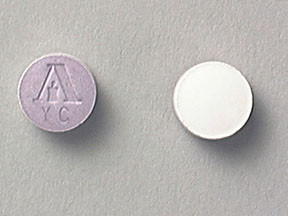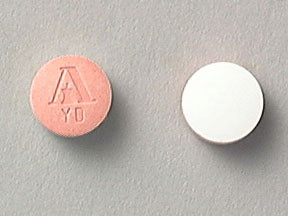LIOTRIX - ORAL
PHONETIC PRONUNCIATION: (LYE-oh-tricks)
COMMON BRAND NAME(S): Thyrolar
GENERIC NAME(S): liotrix
Uses
USES: See also Warning section. Liotrix is used to treat an underactive thyroid (hypothyroidism). It replaces or provides more of a certain natural substance (thyroid hormone) that is normally produced by the thyroid gland. Low thyroid hormone levels can occur naturally or when the thyroid gland is injured by radiation/medications or removed by surgery. Having enough thyroid hormone in your bloodstream is important for maintaining normal mental and physical activity. In children, having enough thyroid hormone is important for normal mental and physical development. This medication is also used to treat other types of thyroid disorders (e.g., certain types of goiters, thyroid cancer). This medication should not be used to treat infertility unless it is caused by low thyroid hormone levels.
How to use LIOTRIX - ORAL
HOW TO USE: Take this medication by mouth, usually once a day on an empty stomach, 30 minutes to 1 hour before breakfast, or as directed by your doctor. Dosage is based on your medical condition, laboratory test results, and response to treatment. For children, the dosage is also based on age. Your doctor will usually start you on a low dose and slowly increase your dose as needed. Use this medication regularly in order to get the most benefit from it. To help you remember, take it at the same time each day. Do not stop taking this medication without first consulting with your doctor. Thyroid replacement treatment is usually taken for life. Symptoms of low thyroid hormone levels include tiredness, muscle aches, constipation, dry skin, weight gain, slow heartbeat, or sensitivity to cold. Tell your doctor if your condition worsens or persists after several weeks of taking this medication.
Side Effects
Precautions
Interactions
Overdose
Images
Reviews
Faq for LIOTRIX - ORAL
Liotrix is a medication used to treat an underactive thyroid gland, or hypothyroidism.
Liotrix works by replacing or supplementing the thyroid hormones that are not being produced adequately by the body.
Common side effects of Liotrix may include headache, nervousness, irritability, stomach upset, and temporary hair loss.
Liotrix should be taken orally, usually once a day on an empty stomach, at least 30 minutes before breakfast.
Liotrix may interact with certain medications, so it is important to inform your doctor about all the medications you are taking.
It may take a few weeks to notice the full effects of Liotrix. Your doctor will monitor your thyroid levels and adjust the dosage if necessary.
Liotrix can be safely used during pregnancy or breastfeeding, but the dosage may need to be adjusted. It is important to consult with your doctor.
If you miss a dose, take it as soon as you remember. However, if it is close to the time for your next dose, skip the missed dose and continue with your regular dosing schedule.
Liotrix can be used in children, but the dosage will depend on their age and weight. It is important to consult with a pediatrician.
Warning
WARNING: This medication should not be used for weight loss. Normal doses of this medication will not work for weight loss, and large doses of this medication may cause serious, possibly fatal side effects, especially when taken with diet pills.
Disclaimer
IMPORTANT: HOW TO USE THIS INFORMATION: This is a summary and does NOT have all possible information about this product. This information does not assure that this product is safe, effective, or appropriate for you. This information is not individual medical advice and does not substitute for the advice of your health care professional. Always ask your health care professional for complete information about this product and your specific health needs.





No Reviews Yet